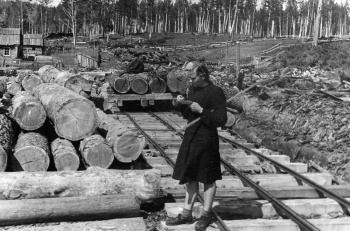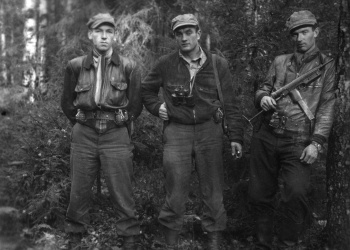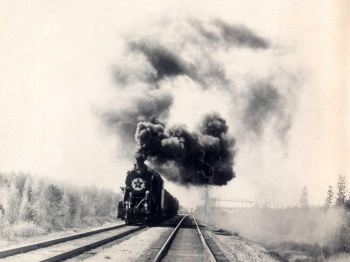Drei Jahre nach dem Ende des Zweiten Weltkriegs steht Europa erneut an einer historischen Schwelle. Wird der Kontinent endlich dauerhaft Frieden finden? Ein Eiserner Vorhang trennt Ost und West, Kommunismus und Kapitalismus. Es sieht so aus, als ob der Vorhang für lange Zeit abgesenkt bliebe.
Das Frühjahr 1948 bringt entscheidende Wendepunkte: einen kommunistischen Putsch in Prag, die Festigung von Stalins Macht im Osten Europas, in Jugoslawien den Bruch zwischen Tito und Stalin und eine Krise in Berlin, die zu einer Machtprobe wird und die Welt an den Rand eines neuen großen Kriegs führt. Die Juden Europas finden eine neue Heimat in Israel.
Zeitzeugen erzählen von ihren Erlebnissen, und selten gezeigtes Archivmaterial dokumentiert ein Jahr, in dem entscheidende Weichen für die Zukunft des Kontinents gestellt wurden.
Spring 48
Three years after the Second World War, Europe finds itself again on a historical threshold. Will the continent finally achieve lasting peace? An Iron Curtain separates East and West, communism and capitalism. It looks as if the Iron Curtain could stay for a long time.
The spring of 1948 is marked by decisive turning points: a communist coup in Prague, the consolidation of Stalin’s power in Eastern Europe, the break between Tito and Stalin in Yugoslavia and a crisis in Berlin which develops into a test of strength and leads the world to the brink of another major war. European Jews find a new home in Israel.
Contemporary witnesses recount their experiences and rarely shown archive material documents a year during which decisive foundations were laid for the future of the continent.
Buch, Regie/script, director: Mathias Haentjes
Produktion/production: TAG/TRAUM Filmproduktion GmbH in Koproduktion mit/in co-production with: Kinescope Film GmbH
Produzent/producer: Gerd Haag
Produktionsleitung/production manager: Cornelia Kellers
Kamera/camera: Torben Müller
Ton/sound: Bea Müller Schnitt/editing: Volker Gehrke Grafik, Titelgestaltung, VFX, Color Grading, Mastering, Sounddesign, Sprachaufnahmen, Tonmischung/graphics, title design, VFX, color grading, mastering, sound design, voice-over recordings, sound mix: Cine Complete GmbH
Musik/music: Michael Klaukien
Mitwirkende/with: Marc Ferro, Günter Lamprecht, Maja Turowskaja u. a.
Redaktion/commissioning editors: Dr. Sabine Rollberg, ARTE; Barbara Schmitz, WDR; Rolf Bergmann, rbb
Fotos/photos: © TAG/TRAUM Filmproduktion GmbH/Kinescope Film GmbH/Torben Müller; The Museum of Genocide Victims
Mathias Haentjes *1959 in Köln; Studium Geschichte, Theaterwissenschaften und Kunstgeschichte in Köln und Florenz; zunächst Redakteur beim WDR-Fernsehen; seit 1991 freiberuflicher Autor und Regisseur zahlreicher Reportagen und Dokumentationen
Mathias Haentjes *1959 in Köln; studied History, Drama and the History of Art in Cologne and Florence; started his career as an editor for WDR television; freelance author and director of numerous reports and documentaries since 1991
Drehorte/locations: Paris, Vilnius, Boston, München, New Brunswick, Dorset, Köln
Drehzeit/shooting time: 25.04.2017-25.05.2017
Erstausstrahlung/TV premiere: 17.04.2018, ARTE
Förderung/financial support: nordmedia − Film- und Mediengesellschaft Niedersachsen/Bremen mbH (Produktion/production)
Information:
Kinescope Film GmbH
Hanseatenhof 6
28195 Bremen
E-Mail: info@kinescope.de
Preis/award:
- ARD Programmprämie 2020 in der Kategorie "Dokumentarfilm ab 60 Minuten"




.jpg)
.jpg)
.jpg)